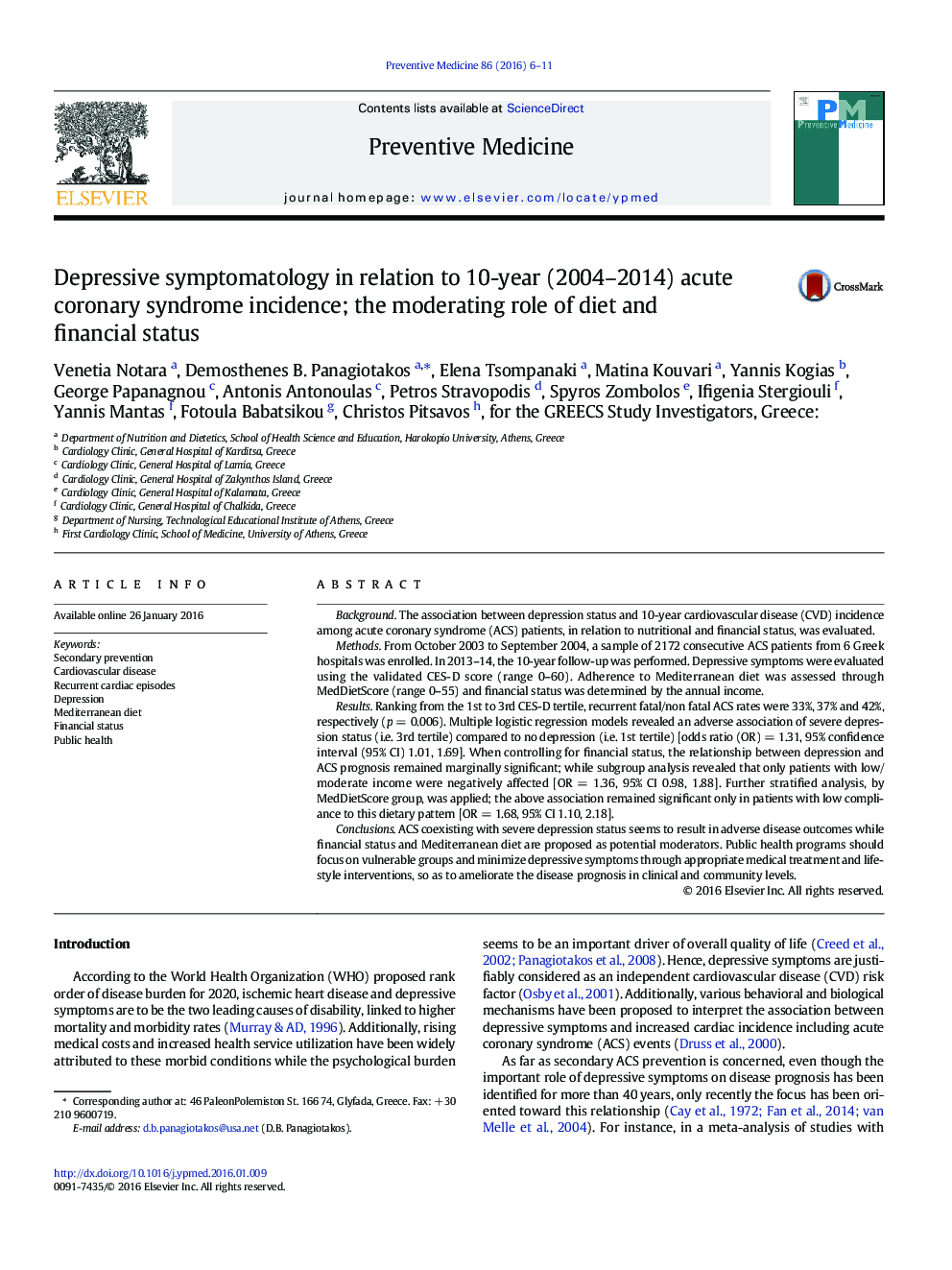| Article ID | Journal | Published Year | Pages | File Type |
|---|---|---|---|---|
| 3100295 | Preventive Medicine | 2016 | 6 Pages |
•Severe depressive symptoms were associated with higher, recurrent ACS events.•Higher, long-term adherence to the Mediterranean diet moderated the association of depression with ACS incidence.•A synergistic effect of low/moderate income and depressive symptoms was revealed as regards 10-year ACS risk.
BackgroundThe association between depression status and 10-year cardiovascular disease (CVD) incidence among acute coronary syndrome (ACS) patients, in relation to nutritional and financial status, was evaluated.MethodsFrom October 2003 to September 2004, a sample of 2172 consecutive ACS patients from 6 Greek hospitals was enrolled. In 2013–14, the 10-year follow-up was performed. Depressive symptoms were evaluated using the validated CES-D score (range 0–60). Adherence to Mediterranean diet was assessed through MedDietScore (range 0–55) and financial status was determined by the annual income.ResultsRanking from the 1st to 3rd CES-D tertile, recurrent fatal/non fatal ACS rates were 33%, 37% and 42%, respectively (p = 0.006). Multiple logistic regression models revealed an adverse association of severe depression status (i.e. 3rd tertile) compared to no depression (i.e. 1st tertile) [odds ratio (OR) = 1.31, 95% confidence interval (95% CI) 1.01, 1.69]. When controlling for financial status, the relationship between depression and ACS prognosis remained marginally significant; while subgroup analysis revealed that only patients with low/moderate income were negatively affected [OR = 1.36, 95% CI 0.98, 1.88]. Further stratified analysis, by MedDietScore group, was applied; the above association remained significant only in patients with low compliance to this dietary pattern [OR = 1.68, 95% CI 1.10, 2.18].ConclusionsACS coexisting with severe depression status seems to result in adverse disease outcomes while financial status and Mediterranean diet are proposed as potential moderators. Public health programs should focus on vulnerable groups and minimize depressive symptoms through appropriate medical treatment and lifestyle interventions, so as to ameliorate the disease prognosis in clinical and community levels.
